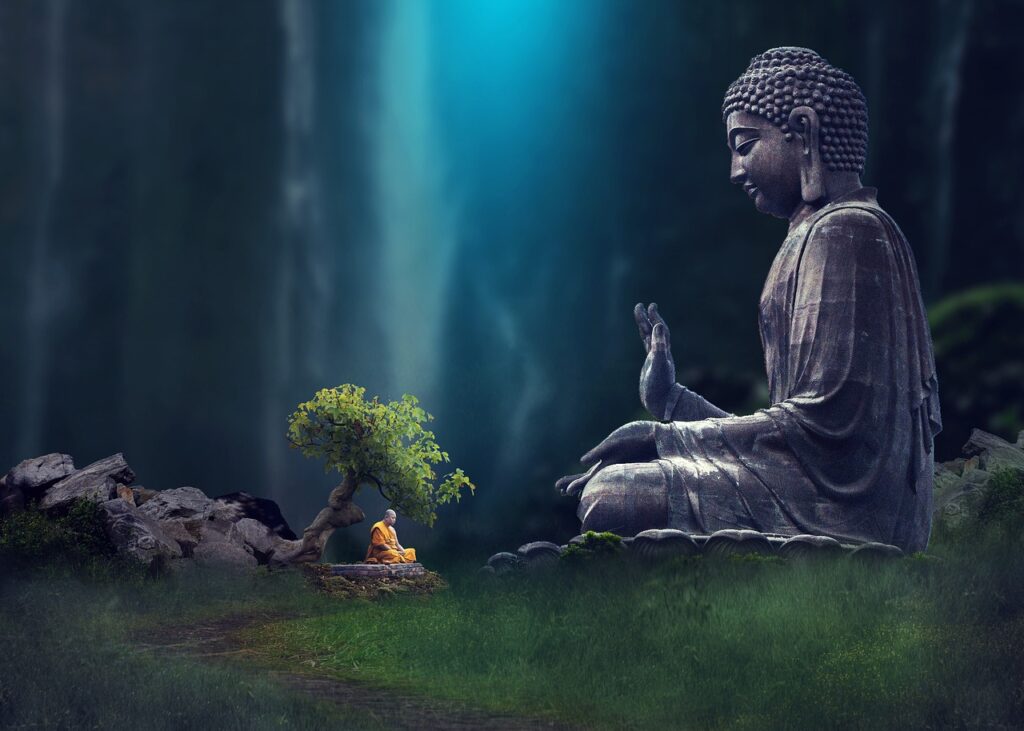We are thrown out in life as little kids with the innate ability to be living and experiencing the present moment to the fullest. It wouldn’t even need to be called an ability, but our natural state.
Initially, life flows effortlessly without the burden of overthinking or conforming to societal expectations. We exist in a state of pure presence, a state of bliss
So what happens along the way?
Recently, I came across a thought-provoking statement:
“Sometimes, the highest achievers find the least joy, for their pursuit of excellence consumes them, leaving little room for the simple pleasures that bring true happiness.”
Initially, I never contemplated this notion deeply. Personally, I’ve always viewed discipline and high achievement as natural aspects of life, rather than peculiarities.
But with time’s passage and reflections on my activities compared to those around me, a realization began to dawn.
It felt as though I was always in overdrive, relentlessly pursuing something, whether a new goal or activity.
This pursuit might entail learning a new language, delving into a book with profound concepts, devising a fitness regimen to reduce body fat to 9%, exploring a new destination, launching a business venture, or mastering an ancient martial art like Shoto-kan.
Well, you can say: But Zifush! that sounds amazing, what would be the problem with that?
The problem is that to achieve that, your mind is wired differently compared to other people; that is why most can only dream to accomplish it.
Well, what is the problem then?
The problem is that, wired different is a two-edged sword; it is a mindset that pursues excellence, that is not content with the average, with “normal” and feels deeply unsatisfied when not striving for more.
It is a profound inverse correlation between achievement and joy; the more the will to achieve, the less joy and contentment; the opposite stands true.
While this mindset isn’t inherently negative, imagine a world where contentment and joy abound, stifling ambition, the problem arises when it comes at the cost of diminishing overall joy and contentment.
This incessant pursuit can lead us onto a hedonic treadmill, forever craving more, perpetually pondering, “What’s next?”
This phenomenon doesn’t solely afflict high achievers; it touches most of us in various ways.
Consider the progression:
Landing a job, then seeking a promotion; acquiring a car, then desiring a second one; purchasing our dream home, then yearning for a beachfront villa; accumulating wealth, then seeking purpose.
It’s an endless cycle.
Understanding this delicate balance between desire and happiness is crucial.
To echo the words of Roman Stoic Philosopher Seneca:
“It is not the man who has little, but he who desires more, that is poor”
This wisdom originates from one of the most influential and affluent figures of his time, not someone seeking solace in philosophy due to poverty.
One of the core teachings of Stoicism is to focus on the things that we can control as thoughts, actions, attitudes.
Then learning to practice acceptance and equanimity with the things that are completely out of our control such as external circumstances.
Think about it, you already probably have achieved lots of things you once aimed for; now, ask yourself, are you perfectly happy and content now?
If not, why do you think desiring more or different external things would get you more joy, happiness, or contentment?
Some people waste away their whole lives to find that out…
Wasting away years pursuing a career, money, status, just to find out they didn’t need any of that to feel joyful.
We can recognize the very important wisdom in knowing that not wanting something is as good as having it!
As Naval Ravikant put it:
“Desire is a contract that you make with yourself to be unhappy until you get what you want.”
That is absolutely no way to live life; I call it living life in goals.
You get so obsessed with achieving something, that you neglect many other areas of your life, until you get what you want, then you get it and guess what?
You will feel good for what? 1 hour, 2 days, 1 week?
Then you will inevitably come ask again “what’s next?”
Life is all that is happening in between those goals!
Is about enjoying, is optimizing for happy not for more, and endless achievement.
“It’s not about the pursuit of happiness but the happiness of pursuit.”
Desire conditioning
One of the important parts when we are talking about the nature of desire, is precisely that, where does our desires come from?
We think comes within us, as if we are the unique manufacturers of all desires we have, but is that really true?
Since we are little we as social creatures are always surrounded by people, whether it be family, friends, coworkers, etc. Even when we are not physically around other people, in the internet era, we have everlasting access to interviews, movies, news, social media.
ALL of that brings some type of conditioning into ourselves, which is then why “society” has its definition of success and obviously in a capitalist society normally that is depicted as economic success – “money.”
Social media makes things worse, as we are then comparing our lives, our bodies, our lifestyle to other people.
Why do you think thousands of people now are desiring to “Be a digital nomad, being able to work from anywhere in the world, extra points if is in Bali while drinking an overpriced smoothie”?
You think all of them have that sudden desire within the most profound parts of their being at the same or more probably are just being subconsciously conditioned?
I mean big brands do that to us all the time; next time you are out of nowhere craving a Big Mac and genuinely think is your choice, think twice.
This is when really learning to look inside and being self-aware really takes place; there is nothing wrong with desiring to live a simple life, wanting to live on a boat, or never aiming to be rich.
“Take the time to deeply explore within yourself whether your desires truly align with your authentic self, or if they’ve been shaped by societal conditioning prompting you to seek something else.”
Desire and contentment
Now if we go on to explore the other side of the argument, we could very well arrive at the conclusion of being joyful and content with all life has to offer us right now, and then we can be happy today, right?
Then we could go on and say we don’t have this or that because we are not materialistic, or that we didn’t achieve this or that because that isn’t real happiness.
But what if we said that to cover up for ourselves?
What if deep down we knew we would want “x” but we are denying it?
We can fool the world, but we can’t fool ourselves.
The young prince
There was a young prince, Siddhartha; he led a life of luxury and privilege within the confines of the palace walls.
He was provided with every comfort and indulgence: women, food, shelter, wealth, shielded from the suffering and hardships experienced by ordinary people outside the palace.
However, despite the opulence surrounding him, Siddhartha began to feel a sense of dissatisfaction and restlessness.
He realized that material wealth and pleasure alone could not bring lasting happiness or fulfillment, so at the age of 29 was that he decided to leave everything behind, start questioning the nature of existence and meaning of life, so he went on this spiritual path until he reached enlightenment.
That is the story of Gautama Siddhartha, who later became known as the Buddha.
Many people are surprised to hear this story, as many believe that such a spiritual being as Buddha was born as a monk meditating and detached from the worldly affairs from the outset.
There lies the paradox; he could not have arrived at that place of understanding without those previous experiences; he had to fully experience the duality of conditions that then served as catalysts for his spiritual awakening, enabling him to develop empathy, wisdom, and compassion for all beings.
Different philosophies converge
We can trace back this teaching on desire to many previous points in time and different philosophies.
The 19th-century German philosopher Arthur Schopenhauer argued that human desires are ultimately futile because they can never be fully satisfied.
The pursuit of desires only leads to temporary gratification, followed by a return to a state of dissatisfaction and longing.
He is also known as a pessimist philosopher, but even with a contrarian view than many, he still is agreeing that an everlasting pursuit of desire will lead to suffering.
Knowledge that trascends time
We have to look back at history and understand that before us, there have been millions of humans on earth, experiencing the same emotions, thoughts, desires, sadness, adversity, etc.
They did their best to learn all they could from their own life experiences and from what previous generations before them could teach them.
If teachings from ancient philosophies like Stoicism and Buddhism, which have endured for thousands of years, remain relevant in today’s world, it would be prudent to honor and glean wisdom from their enduring insights.
It stands as a testament to humanity’s enduring wisdom and resilience across the ages, with each successive generation building upon the accumulated knowledge and experiences of their predecessors.
This continuous exchange and refinement of ideas reflect our innate capacity for growth and adaptation, allowing us to evolve and progress as a species over time, and I feel deeply grateful for those before us, who chose to share their knowledge.
I leave you with this quote:
“Within the boundless expanse of desire, may we discover the infinite riches of contenment within ourselves”
Much love,
Zifush.

